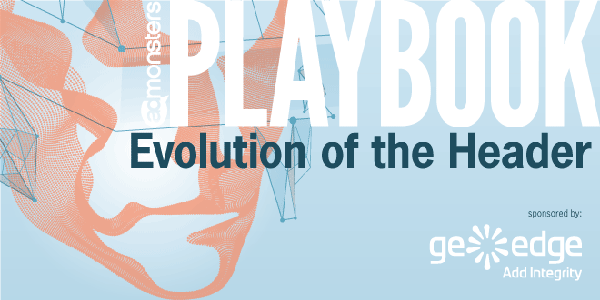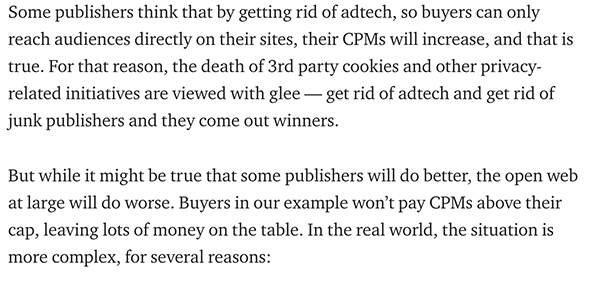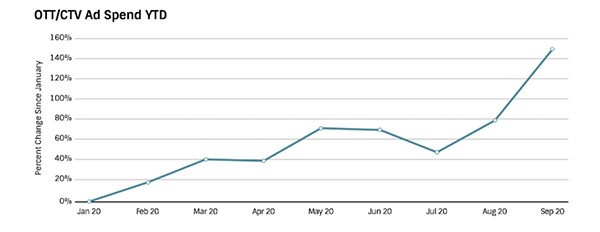 |
||||||||||
|
||||||||||
| Should Google Be the Gatekeeper? |

Image by Lothar Dieterich from Pixabay
|
| Much of the future of advertising is being discussed in W3C meetings every week, where the details of proposals for Google’s Privacy Sandbox are being hashed out. As we’ve reported previously, Google has a lot of influence at these W3C meetings. In the past week, Adweek reported that the Chrome team strongly supports the Dovekey proposal, which is a modification of Criteo’s SPARROW. Instead of a browser having control over bidstream data and auction logic as was outlined in a previous Google proposal, SPARROW recommends having an independent party, known as a gatekeeper. Dovekey, on the other hand, proposes that the auctioning still happen in the browser and that a gatekeeper connects the browser and SSPs to the rest of the ad tech supply chain. The rest of ad tech is calling foul on the play, as the proposal indicates that Google’s own ad server would be the gatekeeper. If that were to be the case, it would continue to place Google at an unfair advantage. |
| How the future of advertising works post-cookie, could easily work in Google’s favor considering how many seats the tech giant has at the W3C table. But will Google still wield that much power over the ad tech ecosystem if the Feds force big G to breakup Chrome and parts of its advertising business? While no final decisions have been made, prosecutors are talking with ad tech experts and pubs about what can be done to weaken Google's dominance over the $162.3B global digital advertising market. What happens with Google as a result of recent antitrust hearings could completely change how things shake-up for the all of ad tech and advertising post cookie. We’ll just have to wait and see. In the meantime, pubs are still sorely underrepresented in the W3C meetings. |
 |
| Publisher Data Leakage—The Happy Medium Edition |

Image sourced from Paul Bannister
|
|
Data leakage is a problem for publishers. It happens when others collect audience data from publishers and use that data to sell against the publisher.
|
| Even in a world without cookies, where tracking across sites isn't expected to happen, Bannister believes that data leakage will continue to exist but that a happy medium will still be possible. His take is a fascinating read. We'd love to hear what you think. |
| OTT/CTV Spend Continues to Soar |

Image sourced from Simpli.fi
|
|
The pandemic has accelerated the growth of the OTT/CTV advertising market. Even prior to the pandemic, eMarketer expected advertisers to spend $5 billion on OTT/CTV in 2020. While this news signifies astronomical growth in AVOD overall, much of that growth can be attributed to the growing number of SVOD choices offering people the option to jump the cable or satellite ship. |
| Cord-cutting has become more of a reality than an anomaly. With an estimated 820 million connected video devices in households across the US, advertisers have a high probability of reaching consumers through multiple devices in a single household. Advertiser spend on large screens increased on CTV by 39% in September, a 108% YOY increase. Meanwhile, spend on small screens—mobile and tablet devices—increased by 77% in September, a 214% YOY increase. Simpli.fi says that the swell in both large and small screen spending indicates advertisers are creating as many touchpoints as possible to stay top-of-mind. |
 |
||
|
||
 |
||
 |
||
|





